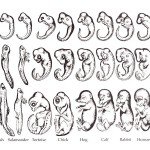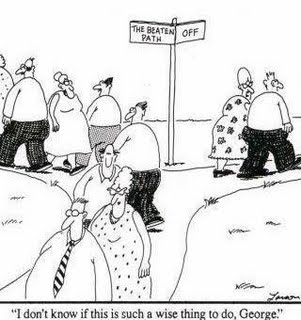[Cross posted from Sixteen Small Stones]

Today marks the 150th anniversary of the publication of “The Origin of the Species” by Charles Darwin. If you’ve followed my blog for a significant time you know that I have doubts about the compatibility of Darwinism and the belief in God as the Creator.
I remember as a high-school biology student, in addition to various other evolutionary facts, our teacher showed us the famous Heackel drawings of the developmental stages of embryos. He made us all memorize the phrase “ontogeny recapitulates phylogeny.” And he insisted that it was a scientific “fact” that proved that Darwin’s theory was undeniably true. It was all very convincing and I believed him. As a faithful member of the LDS church I reasoned that “evolution” was simply the device which God employed to bring to pass the creation. This was in 1989 and little did I know that the “ontogeny recapitulates phylogeny” hypothesis had, even then, been long discredited.

